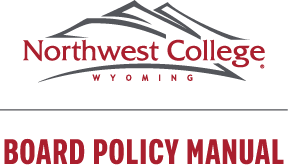To print please use PDF download.
I. In General
Service is also essential to the operation of the College. All faculty must serve students, inside and outside the classroom, including advising and maintaining regular office hours to ensure availability to students. In addition, all faculty must serve their divisions, participating fully in decision making, curriculum development, and other activities that take place there. Faculty are expected to be receptive to reasonable requests for service not only from their divisions, but also from the Faculty Organization, the College administration, and student groups. Beyond that, faculty are encouraged to follow their own interests in terms of their contributions to the College community and their academic disciplines.
II. Range of Academic Service
Faculty shall also be evaluated on evidence of substantial service outside the classroom. The College recognizes that there are many kinds of service and encourages faculty to focus their energies according to their own interests and abilities. However, all faculty are expected to render service to students and to their academic divisions.
The following is a list of examples of different kinds of service; no faculty member is expected to serve in all of these categories:
- Service to Students
Examples: extensive advising, sponsoring student organizations, participating in student orientation activities, organizing field trips, participating in programs organized by student groups. - Service to the Division
Examples: serving on committees as divisional representative, participating in curriculum development, writing program reviews, developing new degrees/programs, writing catalog language, participating in divisional contests or festivals, articulating with universities, other colleges, and high schools. - Service to the Faculty
Examples: holding Faculty Organization offices or serving on Faculty Organization committees, participating in Faculty Organization projects, offering training sessions or workshops for faculty, participating in the statewide Faculty Alliance or similar groups. - Service to the College
Examples: serving on non-division-based committees, recruiting, judging academic contests, participating in workforce development or continuing education efforts. - Service to the Community
Examples: offering public programs for community groups, offering programs for local schools, serving on local or regional boards or committees. Service in this category must be directly related to a faculty member’s field of instruction.
III. Service to the College
The College can function effectively only if its faculty members participate actively in College governance. Faculty members must be willing to undertake a reasonable number of non-teaching assignments, attend meetings, meet deadlines, contribute their ideas and experience during the decision-making process, and shoulder their fair share of the work.
The College expects faculty members, with the exception of the President of the Faculty Organization, to accept a reasonable assignment of committee work and to perform conscientiously the responsibilities of committee membership. The College strongly urges faculty members to attend Commencement.
The College expects faculty members to attend faculty meetings called by the President of the College or the Vice President for Academic Affairs.
The College expects faculty members to be conscientious in meeting deadlines and to fulfill their academic service obligations.
IV. Division
The faculty member’s first line of administrative responsibility is to the academic division. The faculty member should, therefore, maintain regular communication with all members of the division and perform divisional duties as assigned. The College expects all faculty members to attend division meetings, to participate actively in the work of the division, and to be conscientious in meeting deadlines.
V. Faculty Organization
The Faculty Organization, as herein constituted, is the voice of the faculty. The Faculty Organization represents the interests of the faculty through meetings, committee work, and officer functions.
Faculty members should support the Faculty Organization by attending meetings, by becoming involved in programs and committee work, and by showing an interest in the work of the faculty as a whole.
In addition to professional development through the division, faculty members may pursue professional development activities through the Faculty Organization.
VI. Student Advising
Student advisement is a vitally important function for all faculty members. The faculty member should assist each student to develop interests and programs in order to reach the fullest possible personal and professional potential. The faculty member should attempt to insure that students understand and meet College requirements. Faculty members should make themselves available to students for consultation on academic matters.
VII. Extracurricular
Since faculty involvement with student organizations enhances a student’s educational experience, the College expects faculty members to be receptive to requests to serve as sponsors or advisers for student organizations.
VIII. Community Service
The College recognizes that its faculty members are professionals with unique and varied capabilities which permit them to make useful contributions to the larger social communities of which they are members. Involvement in the community not only benefits society but also promotes the College and adds to its prestige. The College encourages faculty members to consider involvement in community service activities, but not to such an extent that it diminishes the faculty member’s effectiveness as a member of the College faculty.
IX. Political Activity
Any member of the faculty who wishes to engage in political activity which shall involve a substantial amount of duty time, e.g., holding or running for political office, managing a campaign, directing group action on behalf of a political candidate or issue, is expected to work out an agreement with the President for released time. In this connection, the President shall consult with the appropriate Division Chair and the Vice President for Academic Affairs.
X. Outside Employment and/or Business Interests
As a full-time professional at the College, a faculty member’s first duty is to the College community. Outside employment, business interests, or consulting activities must not diminish a faculty member’s effectiveness and must be subordinate to the faculty member’s teaching and academic service functions. Any full-time faculty member who wishes to establish or continue an outside employment relationship or business interest involving substantial duty-time commitments during the regular academic year shall, on an annual basis, discuss the matter with the President, the Vice President for Academic Affairs, and the appropriate Division Chair.
In some fields, opportunities exist for consulting work in education, government, or business. Within reasonable limits, this kind of pursuit may provide valuable experience for the faculty member and thereby promote professional growth and development. The faculty member should not expect any reduction in load for engaging in consulting work unless the work is for the College, or such arrangements have been mutually agreed to by the faculty member, the Division Chair, and the Vice President for Academic Affairs.
XI. Adherence to College Policy and Procedures
The College expects faculty members to be cognizant of faculty duties and responsibilities and to comply with its policies. Periodically, there shall be required training in order to comply with college, state, and federal regulations.
Each faculty member has a responsibility to know the policies and procedures of the College and to make every reasonable effort to adhere to them. If questions of interpretation arise, the faculty member should seek clarification from the appropriate group or authority within the College. Any exceptions, mutually agreed to, shall be in writing and signed by the appropriate Division Chair, the VPAA, and the College President.

